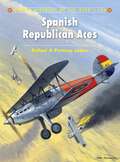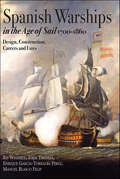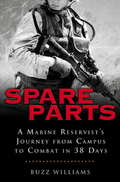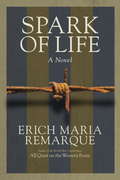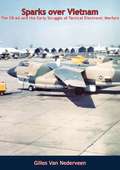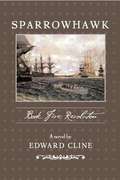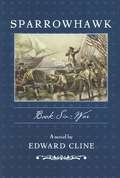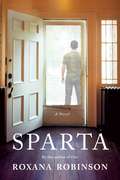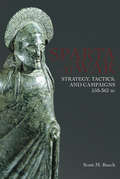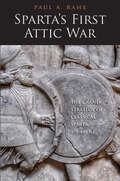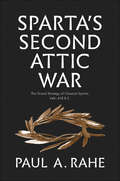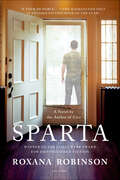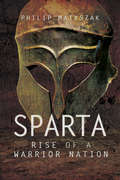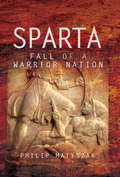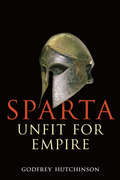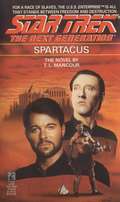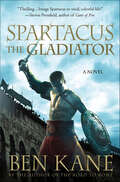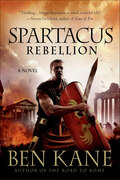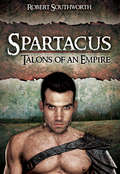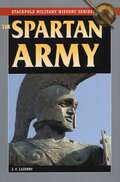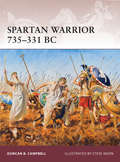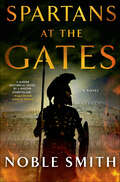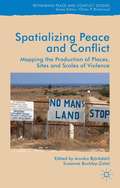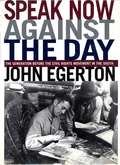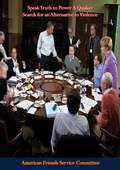- Table View
- List View
Spanish Republican Aces
by Rafael Lopez Julio CaeiroAt the start of the civil war, most young fighter officers joined the rebels (Nationalists). It was the high ranking officers, grupo or escuadrilla commanders, and the NCOs, sergeants and corporals who remained loyal to the government. The obsolete Nieuport Ni.52s and the three rare Hawker Furies were soon outpaced by the opposing more modern Fiat CR.32s and Heinkel He 51s. However, at this early stage of the war, there were several Republican airmen who became aces and famous in the process, despite the small numbers of enemy aircraft shot down. Subsequently, a relative handful ex-French Dewoitine D.372 and Loire Nieuport 46 fighters flown by foreign mercenaries and Spanish pilots managed to turn the aerial balance in favour of the Republicans. With the arrival of the Soviet Polikarpov I-15 Chato and I-16 Mosca fighters, the Republicans consolidated this superiority, but most of the fighter pilots flying these modern types were Soviet. Some Spaniards started to fly Chatos from February 1937 with the establishment of the first two Spanish I-15 escuadrillas, commanded by capitanes García Lacalle and Alonso Santamaría respectively. They made their debut in the battles of the Jarama and Guadalajara. In the north, by the spring and summer of 1937 most Chato pilots were now Spanish. During the battle of Brunete, in July 1937, the first pilots trained in the USSR to fly the fast I-16 Mosca monoplanes arrived in Spain, and they quickly began to take a toll of enemy aircraft. Widely speaking, the Republican military aviation did not keep an exhaustive record of individual shooting claims. However, sufficient documentation exists to make a reasonable assumption as to which pilots fall into the ace category. This volume details the exploits of those pilots, complimenting previous works in the Osprey Aircraft of the Aces series on Nationalist CR.32 Aces and Polikarpov I-15, I-16 and I-152 Aces.
Spanish Warships in the Age of Sail, 1700–1860: Design, Construction, Careers and Fates
by Rif Winfield John Tredrea Enrique García-Torralba Pérez Manuel Blasco Felip“A beautiful work . . . certain to become the standard work in English on the Spanish sailing navy.” —Seaways’ Ships in ScaleThis book is the latest contribution to a unique series in a common format documenting in great detail the warships of the major naval powers during the age of sail. To date, four volumes have covered the British Navy, two have been devoted to the French Navy and one each to the Dutch and Russian Navies. This volume on the Spanish Navy, for much of its history the third largest in the world, fills the final gap in the ranks of the major maritime powers. This book is the first comprehensive listing of these ships in English and covers the development of all the naval vessels owned or deployed by Spain during the period of the Bourbon monarchy from 1700 to 1860 (including the period of French control during the Napoleonic Wars), but it also sets the scene for that period by summarizing the origins of Spanish naval development under the preceding Habsburg regime. As with previous volumes in the series, the main chapters list all the naval vessels from 1700 onwards (including those 16th-century ships which survived into the new regime in 1700) by type, with the first chapters listing the ships of the line (navíos in Spanish terminology) and frigates in descending order of firepower, and subsequent chapters covering minor and ancillary vessels. Where available, a brief service history of each individual ship is given. Its publication is of the utmost importance to every naval historian and general reader interested in the navies of the sailing era.
Spare Parts: From Campus to Combat
by Buzz WilliamsA compelling look into the world of reservists--more than just the "spare parts" of our nation's military--as seen through one manís transformation from weekend warrior to combat marine In 1989, Buzz Williams walked into a marine recruiting office to follow in the footsteps of the deceased older brother he grew up idolizing by signing up to join the Marine Reserves. Over the course of the next year, he would earn money to pay his college tuition by devoting one weekend a month and two full weeks in the summer to the grueling and often dangerous rigors of military training, while enduring the jarring readjustment that occurred each time he returned to civilian life. But Williams had no idea that even the newest reservists could find themselves on the frontlines of a battlefield in a matter of weeks. On August 2, 1990--the day that he graduated from Light Armored Vehicle School--Saddam Hussein's forces invaded Kuwait, and Williams' life would change forever. Spare Parts tells the story of Williams' harrowing deployment to the Persian Gulf, where he would be thrust into battle only 38 days after being called up. Enduring both the condescension of full-time Marines and the danger of his limited training, he managed to form a core group that the struggles to gain respect from a military machine that viewed them as mere "spare parts." In gripping, you-are-there detail, Williams brings to life the physical and emotional trials he would face on the killing fields of Kuwait--where some of the woefully underprepared Marines are able to rise to the challenge and others are broken by the horrors of battle. A powerful portrait of one man's experience in battle--and of the reservists who stand ready to leave civilian life to defend our nation at a moment's notice--Spare Parts adds a moving new perspective to the literature of war.
Spark of Life
by Erich Maria Remarque James SternIn Spark of Life, a powerful classic from the renowned author of All Quiet on the Western Front, one man's dream of freedom inspires a valiant resistance against the Nazi war machine. For ten years, 509 has been a political prisoner in a German concentration camp, persevering in the most hellish conditions. Deathly weak, he still has his wits about him and he senses that the end of the war is near. If he and the other living corpses in his barracks can hold on for liberation--or force their own--then their suffering will not have been in vain. Now the SS who run the camp are ratcheting up the terror. But their expectations are jaded and their defenses are down. It is possible that the courageous yet terribly weak prisoners have just enough left in them to resist. And if they die fighting, they will die on their own terms, cheating the Nazis out of their devil's contract. "The world has a great writer in Erich Maria Remarque. He is a craftsman of unquestionably first rank, a man who can bend language to his will. Whether he writes of men or of inanimate nature, his touch is sensitive, firm, and sure."--The New York Times Book ReviewFrom the Trade Paperback edition.
Sparks over Vietnam: The EB-66 and the Early Struggle of Tactical Electronic Warfare
by Gilles Van NederveenCaptain Van Nederveen's paper can truly be a one source document describing the trials and tribulations of procuring and employing one of the Air Force's first "unique" aircraft during peace, war, and military operations other than war. The EB-66C and the Early Struggle of Tactical Electronic Warfare is an excellent read; methodical, historical, and reminiscent of a true workhorse in the United States Air Force. It is short enough to read in a few short sittings. The lessons learned are immediately apparent and applicable in today's declining budgets. Read this paper for its intellectual content, educational value, or for pure enjoyment. Major General Glen D. Shaffer, USAF Director of Intelligence, Surveillance and Reconnaissance DCS, Air and Space Operations
Sparrowhawk V: Revolution
by Edward ClineHugh Kenrick attends the Stamp Act of 1765Congress in New York while Jack Frake forms a local chapter of the Sons of Liberty. Sparrowhawk V: Revolution continues the story of resistance to the Stamp Act, the true beginning of the American Revolution.
Sparrowhawk VI: War
by Edward ClineSparrowhawk Book VI: War, which concludes the series, opens in the spring of 1774 and ends explosively on the York River in Virginia in September of 1775.
Sparta
by Roxana RobinsonGoing from peace to war can make a young man into a warrior. Going from war to peace can destroy him. Conrad Farrell has no family military heritage, but as a classics major at Williams College, he has encountered the powerful appeal of the Marine Corps ethic. "Semper Fidelis" comes straight from the ancient world, from Sparta, where every citizen doubled as a full-time soldier. When Conrad graduates, he joins the Marines to continue a long tradition of honor, courage, and commitment. As Roxana Robinson's new novel, Sparta, begins, Conrad has just returned home to Katonah, New York, after four years in Iraq, and he's beginning to learn that something has changed in his landscape. Something has gone wrong, though things should be fine: he hasn't been shot or wounded; he's never had psychological troubles. But as he attempts to reconnect with his family and his girlfriend and to find his footing in the civilian world, he learns how hard it is to return to the people and places he used to love. His life becomes increasingly difficult to negotiate: he can't imagine his future, can't recover his past, and can't bring himself to occupy his present. As weeks turn into months, Conrad feels himself trapped in a life that's constrictive and incomprehensible, and he fears that his growing rage will have irreparable consequences. Suspenseful, compassionate, and perceptive, Sparta captures the nuances of the unique estrangement that modern soldiers face as they attempt to rejoin the society they've fought for. Billy Collins writes that Roxana Robinson is "a master at . . . the work of excavating the truths about ourselves"; The Washington Post's Jonathan Yardley calls her "one of our best writers. " In Sparta, with the powerful insight and acuity that marked her earlier books (Cost, Sweetwater, and A Perfect Stranger, among others), Robinson delivers her best book yet. A Washington Post Notable Fiction Book of 2013
Sparta At War: Strategy, Tactics and Campaigns, 550–362 BC
by Scott M. RuschThe story of this military powerhouse of ancient Greece, and its nearly two centuries of battlefield triumphs. During the eighth century BC, Sparta became one of the leading cities of ancient Greece, conquering the southern Peloponnese, and from the mid-sixth century BC until the mid-fourth, Sparta became a military power of recognized importance. For almost two centuries the massed Spartan army remained unbeaten in the field. Spartan officers also commanded with great success armies of mercenaries or coalition allies, as well as fleets of war galleys. Although it is the stand of the Three Hundred at Thermopylae that has earned Sparta undying fame, it was her victories over both Persian invaders and the armies and navies of Greek rivals that upheld her position of leadership in Greece. Even a steady decline in Spartiate numbers, aggravated by a terrible earthquake in 464 BC, failed to end Spartan dominance. Only when the Thebans learned how to defeat the massed Spartan army in pitched battle was Sparta toppled from her position of primacy. In this volume, Scott Rusch examines what is known of the history of Sparta, from the settlement of the city to her defeat at Theban hands, focusing upon military campaigns and the strategic circumstances that drove them. Rusch offers fresh perspectives on important questions of Spartan history, and illuminates some of antiquity&’s most notable campaigns.
Sparta's First Attic War: The Grand Strategy of Classical Sparta, 478–446 B.C. (Yale Library of Military History)
by Paul Anthony RaheA &“provocative, intriguing and cogently argued&” exploration of the collapse of the Spartan-Athenian alliance (David Stuttard, Classics for All). During the Persian Wars, Sparta and Athens worked in tandem to defeat what was, in terms of relative resources and power, the greatest empire in human history. For the decade and a half that followed, they continued their collaboration until a rift opened and an intense, strategic rivalry began. In a continuation of his series on ancient Sparta, noted historian Paul Rahe examines the grounds for their alliance, the reasons for its eventual collapse, and the first stage in an enduring conflict that would wreak havoc on Greece for six decades. Throughout, Rahe argues that the alliance between Sparta and Athens and their eventual rivalry were extensions of their domestic policy, and that the grand strategy each articulated in the wake of the Persian Wars and the conflict that arose in due course grew out of the opposed material interests and moral imperatives inherent in their different regimes. Praise for the series &“Persuasive.&” —New York Times Book Review &“[Rahe] has an excellent eye for military logistics.&” —Wall Street Journal
Sparta's Second Attic War: The Grand Strategy of Classical Sparta, 446-418 B.C. (Yale Library of Military History)
by Paul Anthony RaheThe latest volume in Paul Rahe&’s expansive history of Sparta&’s response to the challenges posed to its grand strategy In a continuation of his multivolume series on ancient Sparta, Paul Rahe narrates the second stage in the six-decades-long, epic struggle between Sparta and Athens that first erupted some seventeen years after their joint victory in the Persian Wars. Rahe explores how and why open warfare between these two erstwhile allies broke out a second time, after they had negotiated an extended truce. He traces the course of the war that then took place, he examines and assesses the strategy each community pursued and the tactics adopted, and he explains how and why mutual exhaustion forced on these two powers yet another truce doomed to fail. At stake for each of the two peoples caught up in this enduring strategic rivalry, as Rahe shows, was nothing less than the survival of its political regime and of the peculiar way of life to which that regime gave rise.
Sparta: A Novel
by Roxana Robinson“Robinson brings the tolls of war up close . . . Her powerful novel demonstrates that fiction actually can function as a sort of explosive device.” —The Washington PostA Washington Post Notable Fiction BookGoing from peace to war can make a young man into a warrior. Going from war to peace can destroy him.Conrad Farrell has no family military heritage, but as a classics major at Williams College, he has encountered the powerful appeal of the Marine Corps ethic. “Semper Fidelis” comes straight from the ancient world, from Sparta, where every citizen doubled as a full-time soldier. When Conrad graduates, he joins the Marines to continue a long tradition of honor, courage, and commitment.As Roxana Robinson’s new novel, Sparta, begins, Conrad has just returned home to Katonah, New York, after four years in Iraq, and he’s beginning to learn that something has changed in his landscape. Something has gone wrong, though things should be fine: he hasn’t been shot or wounded; he’s never had psychological troubles—he shouldn’t have PTSD. But as he attempts to reconnect with his family and his girlfriend and to find his footing in the civilian world, he learns how hard it is to return to the people and places he used to love. His life becomes increasingly difficult to negotiate: he can’t imagine his future, can’t recover his past, and can’t bring himself to occupy his present. As weeks turn into months, Conrad feels himself trapped in a life that’s constrictive and incomprehensible, and he fears that his growing rage will have irreparable consequences.“[A] page-turner . . . Sparta is an exceptional account of life after war.” —People
Sparta: Rise Of A Warrior Nation
by Philip MatyszakThis cultural history of Ancient Sparta chronicles the rise of its legendary military power and offers revealing insight into the people behind the myths. The Spartans of ancient Greece are typically portrayed as macho heroes: noble, laconic, totally fearless, and impervious to pain. And indeed, they often lived up to this image. But life was not as simple as this image suggests. In truth, ancient Sparta was a city of contrasts. We might admire their physical toughness, but Spartans also systematically abused their children. They gave rights to female citizens that were unmatched in Europe until the modern era, meanwhile subjecting their conquered subject peoples to a murderous reign of terror. Though idealized by the Athenian contemporaries of Socrates, Sparta was almost devoid of intellectual achievement. In this revealing history of Spartan society, Philip Matyszak chronicles the rise of the city from a Peloponnesian village to the military superpower of Greece. Above all, Matyszak investigates the role of the Spartan hoplite, the archetypal Greek warrior who was feared throughout Greece in his own day and has since become a legend. The reader is shown the man behind the myth; who he was, who he thought he was, and the environment which produced him.
Sparta: Rise Of A Warrior Nation
by Philip MatyszakThe author of Sparta: Rise of a Warrior Nation continues his revealing history of the Ancient Greek city-state in this chronicle of its decline and defeat. Universally admired in 479 BC, the Spartans became masters of the Greek world by 402 BC, only for their state to collapse in the next generation. What went wrong? Was the fall of Sparta inevitable? In Sparta: Fall of a Warrior Nation, Philip Matyszak examines the political blunders and failures of leadership which combined with unresolved social issues to bring down the nation—even as its warriors remained invincible on the battlefield. The Spartans believed their society was above the changes sweeping their world. And by resisting change, they were doomed to be overwhelmed by it. But the Spartans refused to accept total defeat, and for many years their city exercised influence far beyond its size and population. This is a chronicle of political failure—one rich in heroes, villains, epic battles and political skullduggery. But it is also a lesson in how to go down fighting. Even with the Roman legions set to overwhelm their city, the Spartans never gave up
Sparta: Unfit For Empire
by Godfrey HutchinsonThe end of the Peloponnesian War saw Sparta emerge as the dominant power in the Greek world. Had she used this position wisely her hegemony might have been secure. As it was, she embarked on actions that her former allies, Thebes and Korinth, refused to support. The rise of Thebes as a threatening power to Sparta's control of Greece was largely the result of the brilliant exploits of Epaminondas and Pelopidas whose obvious examination of Spartan tactics allowed them to provide counters to them. While noting the political issues, Godfrey Hutchinson's focus is upon the strategic and tactical elements of warfare in a period almost wholly coinciding with the reign of the brilliant commander, Agesilaos, one of the joint kings of Sparta, who, astonishingly, campaigned successfully into his eighties.
Spartacus (Star Trek: The Next Generation #20)
by T. L. MancourAnswering a distress call, the U.S.S. Enterprise finds a damaged alien vessel -- the Freedom -- crewed by a race known as the Vemlans. Their captain, Jared asks for assistance in repairing his ship -- assistance Picard and the U.S.S. Enterprise are only too happy to provide. But once begun, their relief efforts are interrupted by the arrival of an entire fleet from Vemla, who claim that Jared and his crew are escaped slaves -- and their property! As Jared and his people plea for protection and the right to be free, Captain Picard is caught between the demands of his conscience and the dictates of the Prime Directive. And when the Vemlan fleet threatens to fight if the U.S.S. Enterprise doesn't stand aside, Picard must choose between the safety of his ship...and the annihilation of an entire race.
Spartacus, the Gladiator: A Novel (Spartacus Chronicles Ser. #1)
by Ben Kane“Gritty, passionate and violent . . . a real page-turner and a damn good read. It brings Spartacus—and ancient Rome—to vivid, colorful life.” —Steven Pressfield, author of Gates of FireSink your teeth into the gritty, powerful tale of Spartacus, The Gladiator, a historical thriller that will grip you from the first page to the very last. Written by bestselling novelist Ben Kane, this epic journey delves into the life of Spartacus—from Roman auxiliary and slave to revered gladiator and a symbol of defiance against the most potent army of the era.Step onto the unforgiving sands of the gladiatorial arena and experience the brutality and raw energy of combat at its most primal. Witness the audacious bid for freedom led by Spartacus and his band of gladiators as they risk everything to break free from their shackles and challenge their oppressors—the mighty, ever-expanding Roman Empire.Spartacus’s tale isn’t just a story of rebellion; it’s an exploration of humanity, resilience, love, and sacrifice, set against the historic grandeur of ancient Rome.Charged with emotion and vivid color, this novel will transport you back in time to the underbelly of the Roman Empire—a journey that’s as thrilling as it is enlightening. Enjoy a fresh perspective of the legend that is Spartacus, one that goes deeper than ever before, uncovering the man at the heart of the myth.“You’ll swear you hear the thunder of the Coliseum and the roar of the lions in the pit!” —James Rollins“A compulsive, relentless story, vividly recounted in muscular prose.” —The Daily Telegraph (UK)“Powerful . . . The quest for freedom against overwhelming odds is just the beginning.” —Library Journal
Spartacus: A Novel (Spartacus Chronicles Ser. #2)
by Ben KaneSpartacus and his ragtag army take on the mighty Roman army in Ben Kane's brilliant recreation of one of the best-known epics of the modern era Spartacus has already done the impossible—not only has he escaped from slavery, he and his seconds have created a mighty slave army that has challenged Rome and defeated the armies of three praetors, two consuls, and one proconsul. On the plain of the River Po, in modern Northern Italy, Spartacus has defeated Gaius Cassius Longinus, proconsul and general of an army of two legions. Now the road home lies before them—to Thrace for Spartacus, and to Gaul for his seconds-in-command, Castus and Gannicus. But storm clouds are gathering on the horizon. One of Spartacus's most powerful generals has defected, taking his men with him. Back in Rome, the immensely rich Marcus Licinius Crassus is gathering an unheard-of Army. The Senate has given Crassus an army made up of ten legions and the authority to do whatever it takes to end the slave rebellion once and for all. Meanwhile, Spartacus wants to lead his men over the Alps and home, but his two seconds have a different plan. They want to march on Rome itself and bring the Republic to its knees. Rebellion has become war. War to the death.
Spartacus: Talons of an Empire
by Robert SouthworthThis enthralling piece of work by first-time novelist Robert Southworth explores the avenue history could have run down if Spartacus had survived the slave rebellion in 73BC, an uprising whose aftermath didn't deliver the remains of the famous slave leader. The brute force of this famous figure of Roman history is relayed, and the events of the period re-imagined to great effect. The work is sure to appeal to fans of Roman history, as well as those enamored by stories of action and adventure. Whilst the figure of Spartacus continues to hold massive appeal for contemporary audiences, this work offers a fresh vision of the Roman era; a dark and brutal reenactment of high gladiatorial drama.
Spartan Army (Stackpole Military History Series)
by J. F. LazenbyReprint of a classic work of ancient military history Traces the origins of Sparta's unique training, tactics, and organization that made it the master of Greek battlefields Clear analysis of battles such as Thermopylae, Plataea, Mantinea, and Leuktra Spartan warriors continue to influence modern militaries, including the U.S. Marine Corps
Spartan Warrior 735-331 BC
by Steve Noon Duncan CampbellImmortalized through their exploits at the battle of Thermopylae under the legendary Leonidas, as well as countless other victories throughout the classical period, the Spartans were some of the best trained, organized, most feared and lethal warriors of the ancient world. This small state, known to the Ancient Greeks as Lakedaimon, situated in the southern Argolid developed one of the most successful military forces of the Ancient World. Their unique society, where serfs (helots) and non-citizen labourers (perioikoi) left the pure-bred men of Sparta free to concentrate all their energies on warfare. Forbidden from engaging in any form of manual labour, these Spartan warriors were trained from an early age in a brutal regime that gave them the necessary discipline and endurance to withstand the pressures of phalanx warfare and endure all manner of hardships on campaign.This title will describe all aspect of the Spartan warriors life, from the earliest days of his training through his life in peace and war culminating in the battlefield experiences of these feared combatants. The Spartans saw widespread combat throughout the Peloponnese and beyond during the Greek and Persian and Peloponnesian wars, becoming the supreme Greek power following their eclipse of Athens until the battles of Leuctra and Mantineia saw their star wane.
Spartans at the Gates: A Novel (Nikias of Plataea #2)
by Noble SmithThe Peloponnesian War has begun. An army of merciless Spartan invaders have arrived at the gates of Plataea, bent on obliterating the independent city-state and its inhabitants. Plataea's oldest allies, the Athenians, are spread too thin in their own campaigns to send help. Cut off and alone, the Plataeans have dug in behind their high walls for the coming attack, while the tyrannical Spartans prepare to lay siege.On a rugged mountain road, a young Plataean warrior named Nikias rides to Athens on an urgent quest. He carries with him a bag of ill-gotten gold, hoping to raise an army of mercenaries to help defend his citadel from the Spartan assault. But in the sprawling stronghold of Athens, Nikias encounters perils that prove to be more dangerous than those he has faced on the battlefield. Noble Smith's Spartans at the Gates transports us to the dawn of one of history's most famous wars--a fight that would tear apart the great powers of ancient Greece.
Spatializing Peace and Conflict: Mapping the Production of Places, Sites and Scales of Violence (Rethinking Peace and Conflict Studies)
by Annika Björkdahl Susanne Buckley-ZistelThis volume brings to the fore the spatial dimension of specific places and sites, and assesses how they condition – and are conditioned by – conflict and peace processes. By marrying spatial theories with theories of peace and conflict, the contributors propose a new research agenda to investigate where peace and conflict take place.
Speak Now Against The Day: The Generation Before the Civil Rights Movement in the South
by John EgertonSpeak Now Against the Day is the astonishing, little-known story of the Southerners who, in the generation before the Supreme Court outlawed school segregation and before Rosa Parks refused to surrender her seat on a Montgomery bus, challenged the validity of a white ruling class and a "separate but equal" division of the races. The voices of the dissenters, although present throughout the South's troubled history, grew louder with Roosevelt's election in 1932. An increasing number of men and women who grappled daily with the economic and social woes of the South began forcefully and courageously to speak and to work toward the day when the South--and the nation--would deliver on the historic promises in the country's founding documents. This is the story of those brave prophets--thhe ministers, writers, educators, journalists, social activists, union members, and politicians, black and white, who pointed the way to higher ground. Published forty years after the Brown v. Board of Education ruling of the Supreme Court, this compelling book is not only a rich trove of forgotten history--it also speaks profoundly to us in the context of today's continuing racial and social conflict.
Speak Truth to Power: A Quaker Search for an Alternative to Violence
by American Friends Service CommitteeStudies on moral ways to ease international tensions. Prepared for The American Friends Service Committee. For more than thirty-five years the American Friends Service Committee has worked among those who suffer, recognizing no enemies, and seeking only to give expression to the love of God in service. Out of this experience, gained under all kinds of governments and amidst all kinds of people, has come some appreciation of the problems of peacemaking in the modern world.
